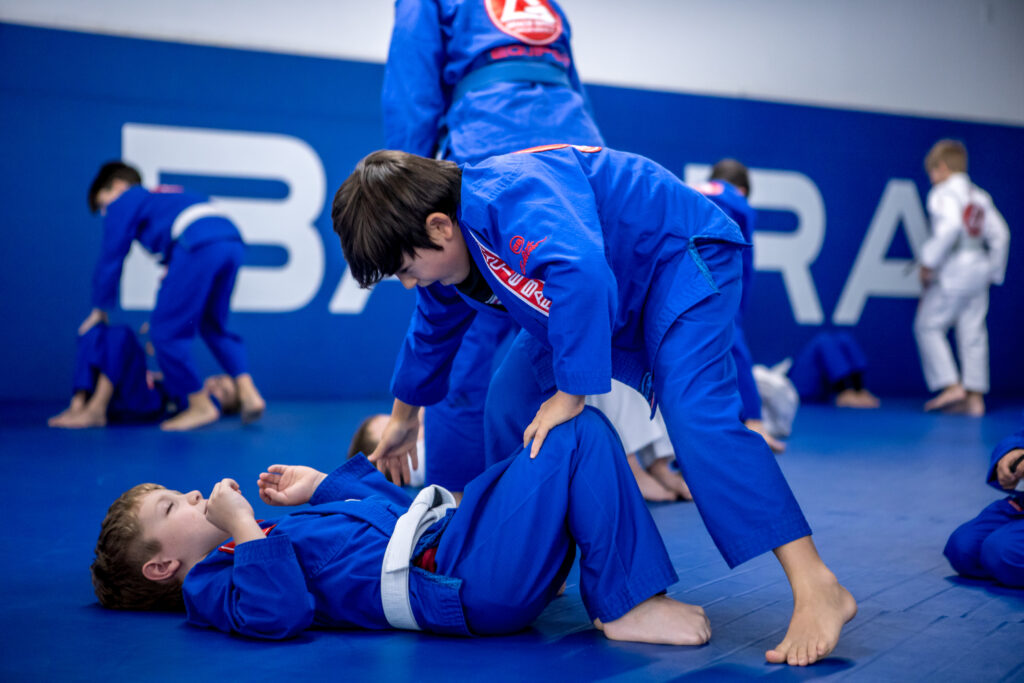
In a world bustling with diverse activities for children, Brazilian Jiu-Jitsu (BJJ) emerges as a transformative force, offering more than just physical fitness. Beyond the mats and the techniques, BJJ serves as a powerful tool for shaping young minds and bodies. This article explores the profound importance of Brazilian Jiu-Jitsu for children, delving into its holistic benefits that extend far beyond the confines of the dojo.
1. Physical Fitness and Health Benefits:
Body:
Brazilian Jiu-Jitsu is renowned for its emphasis on physical fitness. For children, whose boundless energy needs constructive outlets, BJJ provides a unique solution. Through a combination of cardiovascular exercise, strength training, and flexibility drills, children engaged in BJJ develop robust physical health. This not only helps combat the rising concerns of childhood obesity but also lays the foundation for a lifelong commitment to fitness.
2. Discipline and Focus:
The disciplined nature of BJJ training instills valuable life skills in children. Learning and mastering techniques require patience, concentration, and attention to detail. These attributes translate beyond the mat, aiding children in academic pursuits and day-to-day activities. BJJ becomes a medium through which children learn the importance of setting goals, staying disciplined, and persevering through challenges.
3. Problem-Solving and Critical Thinking:
BJJ is often compared to physical chess, requiring strategic thinking and problem-solving in real-time. As children engage in sparring sessions and grapple with opponents, they enhance their cognitive abilities. The art of anticipating moves, countering strategies, and adapting on the fly fosters critical thinking skills that are invaluable both inside and outside the dojo.
4. Confidence Building:
Martial arts, including BJJ, are renowned for their ability to instill confidence in practitioners. For children, the sense of accomplishment that comes with mastering a new technique or earning a higher belt fosters self-esteem. This newfound confidence extends to various aspects of their lives, from social interactions to academic challenges.
5. Respect and Sportsmanship:
One of the fundamental tenets of BJJ is respect, not only for the art itself but also for training partners and opponents. Children learn to appreciate the efforts of their peers, understand the value of teamwork, and exhibit good sportsmanship. These values transcend the mat, shaping children into respectful, empathetic individuals who understand the importance of cooperation and fair play.
6. Emotional Regulation and Stress Relief:
The demands of modern life can sometimes be overwhelming for children, leading to stress and emotional turmoil. BJJ provides a constructive outlet for these emotions. The controlled environment of the dojo, coupled with the physical exertion of training, becomes a therapeutic space where children can channel their energy positively, learn to manage stress, and build emotional resilience.
7. Bullying Prevention and Self-Defense Skills:
In an era where bullying is a prevalent concern, BJJ equips children with the skills necessary to protect themselves. Beyond physical techniques, the martial art empowers children with the confidence to assert themselves verbally, deterring potential bullies. This dual approach to self-defense not only enhances physical safety but also cultivates a sense of empowerment in children.
8. Camaraderie and Social Skills:
BJJ fosters a sense of community and camaraderie among practitioners. For children, this means forming bonds with peers who share a common interest. The collaborative nature of training sessions encourages teamwork and communication, nurturing the development of crucial social skills that will serve children well in various social settings.
In a world where the challenges faced by children are diverse and complex, Brazilian Jiu-Jitsu emerges as a holistic solution, addressing physical, mental, and emotional well-being. The art not only imparts self-defense skills but also shapes the character of children, molding them into disciplined, confident, and resilient individuals. As parents and educators seek comprehensive approaches to child development, the significance of Brazilian Jiu-Jitsu as a transformative tool cannot be overstated. It is not merely a sport; it is a journey that empowers futures and shapes the leaders of tomorrow.




